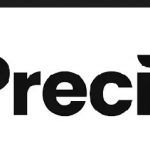Central Bank of Nigeria (CBN) has withdrawn its six-week restriction on five leading fintech companies – Paga, OPay, Kuda, Palmpay, and Moniepoint – from onboarding new customers. The directive, initially issued on April 29, 2024, came shortly after the CBN blocked over 1,000 accounts linked to peer-to-peer (P2P) crypto trading activities.
The decision to freeze new customer sign ups stemmed from concerns raised by Nigeria’s National Security Adviser (NSA), who labelled crypto transactions as a potential security threat. Consequently, the NSA urged fintechs to strengthen their Know Your Customer (KYC) and fraud prevention measures to curb unauthorized crypto transactions through their platforms.
On May 20, 2024, the CBN outlined several conditions for lifting the onboarding freeze. These conditions included blocking P2P crypto transfers, mandating physical address verification for all account tiers, and updating facial verification systems for customers. The move aimed to enhance KYC compliance and mitigate the risk of fraud.
While fintech startups have faced criticism for lax KYC practices contributing to fraudulent activities, recent reports suggest that combating fraud is a widespread challenge across the industry. Nonetheless, the affected fintechs will undoubtedly welcome the CBN’s decision, as the ban had stifled their growth and prevented them from acquiring thousands of potential customers during the six-week period.
The CBN’s decision reflects a balanced approach, addressing security concerns while recognizing the vital role fintechs play in promoting financial inclusion and driving innovation within Nigeria’s rapidly evolving digital economy. By implementing robust KYC and anti-fraud measures, these fintech companies can now resume onboarding new customers while maintaining regulatory compliance and safeguarding the integrity of the financial system.
 We just launched our WhatsApp channel. Want to get the latest news from the Tech in Africa?
We just launched our WhatsApp channel. Want to get the latest news from the Tech in Africa?



